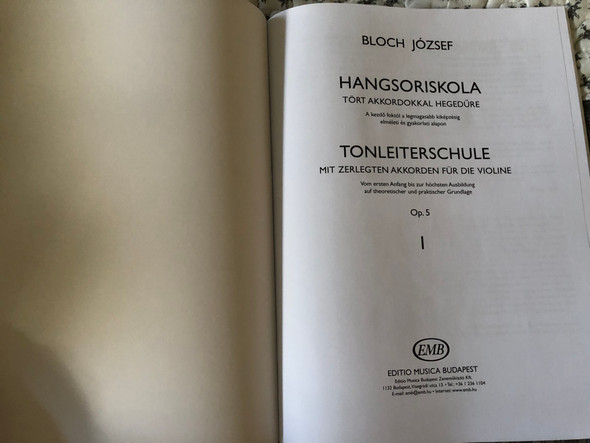Description
Toscanini and Beethoven by Ernő Lendvai / The Reconstruction of the 'Seventh Symphony' / Akkord Music Publishers / Paperback
Paperback 2000
ISBN: 9789639255012 / 978-9639255012
ISBN-10: 9639255017
PAGES: 82
PUBLISHER: Akkord Music Publishers
LANGUAGE: English
English Description:
There are such musical phenomena (and these are perhaps the most primary) as can no more tolerate a literary treatment than mathematical rules would yield to an aesthetical approach. Toscanini’s elemental ex-periences come in this class. He was not the type of conductor who went in for artistic speculation — and in contrast to Bruno Walter, Furtwingler, Weingartner and other masters — he never felt it necessary to translate the language of music into words. As is known, he always preferred to settle an aesthetic question by showing at the piano what he thought ‘good’ and what he thought ‘bad’, and perhaps it did not even occur to him that a debatable question of music could ever be discussed unless by means music itself. His highest aesthetic category covered the concepts of good and truth, and he could pay no greater compliment to a musician than by calling him an honest man. And it is in this train of thought that the chosen subject of this study is neither Toscanini nor Beethoven but the question of ‘truth in art’ as revealed in the relationship of the conductor to the composer. But precisely from this point of departure shall we arrive at a most surprising result: Although Toscanini did not commit himself as an aesthete on music, we can learn more of aestheti- cism from him than from any other performer of his age.
The unlimited control of material (around which legends have arisen) was only a concomitant of the spiritual greatness in him. The success of his concerts had been established already in his studio — at the score: where he really felt. happy. The concert. hall, as he confessed was place of boundless suffering, and rehearsals were for him ‘tests of strength’, superhuman trials, both spiritually and physically. It is perhaps to the modesty of our Bartók that we should compare Toscanini's puritan way of treating technical knowledge as a workshop secret, always looking towards the final issue — artistic realization.
Studia Musicologica publishes papers, documentary studies and short essays in the field of musicology in the broadest sense, with special respect to subjects connected with the history of Hungarian music and folk music. It also contains reports of congresses.






















.JPG)
.JPG)
.JPG)
.JPG)

















